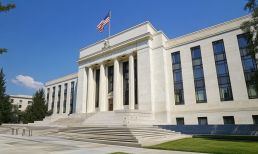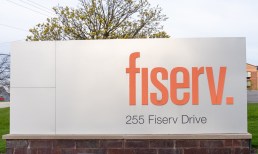Despite concerns that the spread of the COVID-19 Delta variant could impact consumer spending as pandemic anxiety rises again and mask mandates are reintroduced across the U.S., mall operator Simon Property Group is pushing forward as demand for leases increases.
David Simon, CEO of Simon Property, said that in places that have seen an uptick in COVID, such as Missouri and Florida, no coronavirus cases have been reported from retailers or staff at the malls that Simon Property operates.
“The mall is safe,” Simon told investors and analysts during the company’s quarterly earnings call. “And so even though we’re starting to see counties talk about indoors, there’s no science about the mall. … We’ve been mistreated in this whole 18-month ordeal, but it is what it is.”
Related news: June Spending Up, But Delta Variant Darkens Outlook
Simon added that “where we need to mask up, we’re going to mask up,” but it’s likely that consumers are “just going to deal with Delta,” and he’s hopeful that lockdowns aren’t mandated as the situation progresses. “Let us do our business,” he said. “Mask up if you need to. The mall is safe.”
According to location analytics company Placer.ai, foot traffic at Simon Property’s locations was up about 60 percent year over year in July, but down slightly compared to 2019.
Advertisement: Scroll to Continue
Leasing Demand
Simon said he’s been “tickled pink” by the demand from retailers and other tenants, particularly restaurants and mixed-use developers, which has led to an acceleration in leasing activity. Simon Property signed nearly 1,400 leases for approximately 5.2 million square feet in the second quarter, bringing the total for the first six months of the year to 2,500 leases for over 9.5 million square feet. That’s 800 more leases — and three million more square feet — than were signed in the first six months of 2019.
As of June 30, the end of the second quarter, malls’ and outlets’ occupancy was nearly 92 percent, approximately the same level as 2020. “It’s more mixed-used than ever,” Simon said. “The demand on the mixed-use front has been really, really nice to see.” He added that Simon Property is currently in the process of redeveloping some former department stores that it either got back from expired leases or bought from former owners.
See also: Simon Property Says Crocs Is ‘Killing It’ As Demand From Brands, Restaurants, Apparel Rises
Retail sales also continue to increase, up 13 percent from January to June compared to the same period in 2019.
“Read my lips: Physical retail is here to stay, and people really like to shop in the physical world,” Simon said. “So don’t believe everything you hear on TV. We’ve got the evidence.”
Part of that evidence comes from Simon Property’s SPARC Group, a joint venture with Authentic Brands Group that owns Forever 21, Aeropostale, Brooks Brothers and Eddie Bauer. While omnichannel is “clearly very important to the future,” Simon said, “these companies are basically surviving and prospering because of their physical footprint, not because of eCommerce.”
Looking Ahead
Simon Property increased its full-year guidance, from $9.70 per share to $10.70 per share, which represents approximately 17 percent to 19 percent growth compared to 2020. The company expects to generate approximately $4 billion in funds from operations this year, a 25 percent increase compared to last year, but 5 percent lower than 2019.
Still, Simon said that just a 5 percent decrease compared to two years ago, “given all that we’ve endured over the last 15, 16 months,” is impressive. “I’m pleased with the activity, the mojo that we have in leasing, the work that our personnel is doing there and the creativity,” he said. “It’s pretty encouraging.”
Simon noted that several properties in tourist centers still don’t have many tourists other than domestic, and some parts of the country, such as California, have been slower to reopen post-pandemic than others, but demand for physical shopping is still there.
“At some point in the not-too-distant future, we’re going to see really good growth in our high-quality tourism centers,” he predicted.




